7 times Imperial research made you double-take in 2016

Every now and again, a research story comes along which make you blink and look twice.
From cheating sparrows to robotic rectums, some research announcements are more than a little bit quirky.
However, look beyond the headline and you’ll find fascinating research with powerful real world applications. Here are a handful of the stories which made readers do a double-take in 2016.
Bothersome badgers?
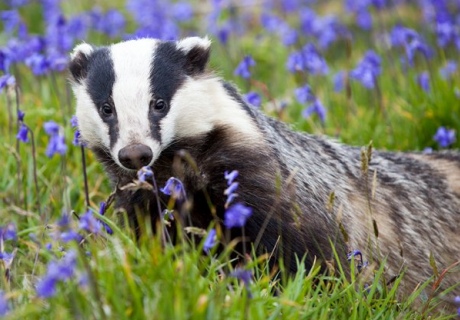 ‘Badgers and cattle seldom meet’. It’s not a headline you would expect to find, and this study from the School of Public Health in August certainly caught people’s eyes. The important research offered new insights into the transmission of bovine tuberculosis – specifically that close contact between badgers and cattle may not be responsible, as originally thought.
‘Badgers and cattle seldom meet’. It’s not a headline you would expect to find, and this study from the School of Public Health in August certainly caught people’s eyes. The important research offered new insights into the transmission of bovine tuberculosis – specifically that close contact between badgers and cattle may not be responsible, as originally thought.
Read more: Badgers and cattle seldom meet, says new study
Lighter bikers
 It was cyclists vs car drivers in August 2016. A European study carried out in part by our Centre for Environmental Policy found that people who drive cars as their main form of transport are on average heavier than those who cycle. On average four kilograms (8.8 lbs), to be precise.
It was cyclists vs car drivers in August 2016. A European study carried out in part by our Centre for Environmental Policy found that people who drive cars as their main form of transport are on average heavier than those who cycle. On average four kilograms (8.8 lbs), to be precise.
Read more: Car drivers are four kilograms heavier than cyclists, new study reveals
Lost in space
 The universe has no direction – this was the finding of a co-authored study between Imperial and University College London physicists. The researchers carried out the most stringent test yet of the assumption that universe is broadly the same, whatever your position and in whichever direction you look. They found it is not spinning or stretched in any particular direction.
The universe has no direction – this was the finding of a co-authored study between Imperial and University College London physicists. The researchers carried out the most stringent test yet of the assumption that universe is broadly the same, whatever your position and in whichever direction you look. They found it is not spinning or stretched in any particular direction.
Read more: Scientists confirm the universe has no direction
Chirpy cheaters
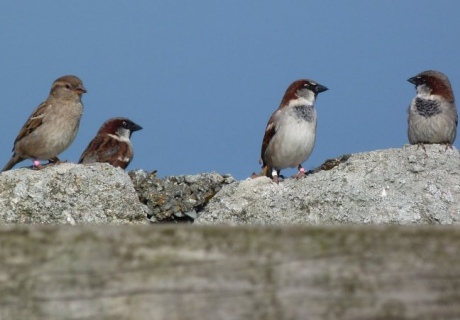 Whether in a magazine or daytime TV show, infidelity is something you would expect to hear about in a human context. But research from the Department of Life Sciences in June looked at the topic within the animal kingdom. The team found that that male sparrows can judge if a spouse is prone to cheating.
Whether in a magazine or daytime TV show, infidelity is something you would expect to hear about in a human context. But research from the Department of Life Sciences in June looked at the topic within the animal kingdom. The team found that that male sparrows can judge if a spouse is prone to cheating.
Read more: Sparrows with unfaithful 'wives' care less for their young
Tech taboo
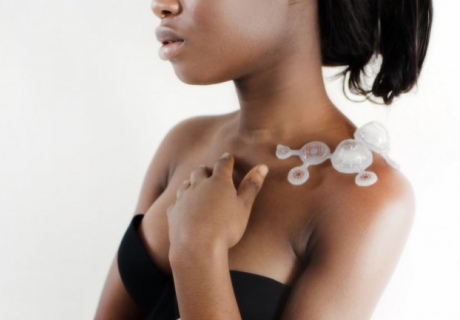 Headlines abounded in July when it was announced that an Imperial postgraduate student had designed 'erotic jewellery' that helps women understand and explore their own sexual arousal. Made from silicone and applied to the wrists, arms or neck, the modular devices – called Wisp - emulate subtle sensations such as fingertips on the skin or a lover’s breath.
Headlines abounded in July when it was announced that an Imperial postgraduate student had designed 'erotic jewellery' that helps women understand and explore their own sexual arousal. Made from silicone and applied to the wrists, arms or neck, the modular devices – called Wisp - emulate subtle sensations such as fingertips on the skin or a lover’s breath.
Read more: Wearable tech challenges taboos around female sexuality
Squirreling away
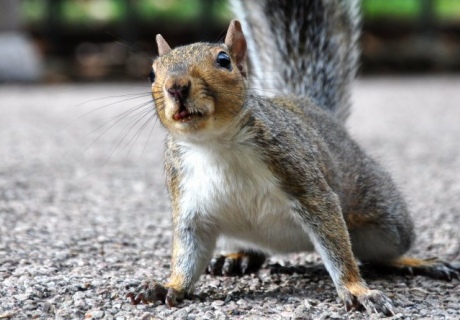 For a long time the grey squirrel has been branded an outright invader, but new research from Imperial in January 2016 found that humans have played a much larger role in spreading them through the UK.
For a long time the grey squirrel has been branded an outright invader, but new research from Imperial in January 2016 found that humans have played a much larger role in spreading them through the UK.
Read more: Don't blame grey squirrels: their British invasion had much more to do with us
Robotic rear
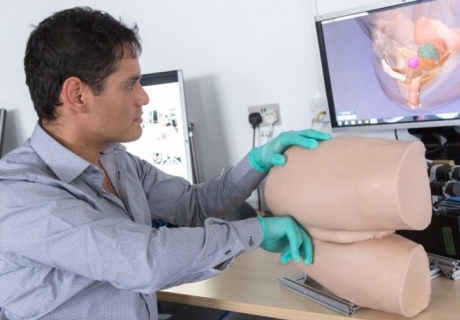 If any Imperial news story in 2016 made people double-take, it was this one. News that Imperial scientists had developed technology consisting of prosthetic buttocks and rectum went far and wide. The device, which aims to help doctors and nurses detect prostate cancer, was picked up in the national press – gaining a live demonstration in Channel 4’s Stand Up to Cancer, and even landing on an episode of Have I Got News for You.
If any Imperial news story in 2016 made people double-take, it was this one. News that Imperial scientists had developed technology consisting of prosthetic buttocks and rectum went far and wide. The device, which aims to help doctors and nurses detect prostate cancer, was picked up in the national press – gaining a live demonstration in Channel 4’s Stand Up to Cancer, and even landing on an episode of Have I Got News for You.
Read more: Robotic rectum may aid prostate cancer diagnosis
–
Enjoy reading Imperial’s research and College news? Be the first to catch our stories with Imperial Today – the daily email bulletin of the College’s freshest online news and digital content. Sign up to Imperial Today.
Article text (excluding photos or graphics) © Imperial College London.
Photos and graphics subject to third party copyright used with permission or © Imperial College London.
Reporter
Andrew Youngson
Communications Division